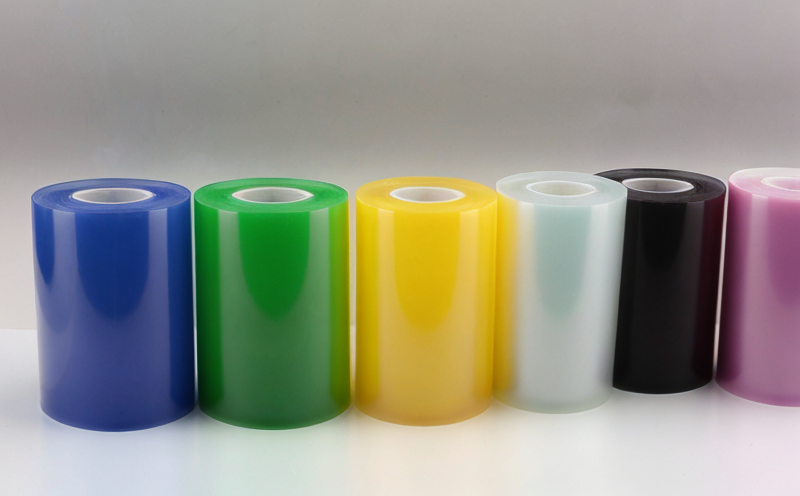ISO 527 Tensile Strength Testing of Plastic Films and Sheets
The ISO 527 standard is a widely recognized international guideline for performing tensile strength testing on plastic films and sheets. This test evaluates the mechanical properties of these materials under uniaxial tension, providing critical insights into their structural integrity.
Understanding the tensile strength of plastic films and sheets is essential in various sectors such as packaging, automotive, medical devices, and consumer goods. It helps ensure that products can withstand the stresses encountered during manufacturing, transportation, storage, and use without compromising safety or performance.
The test procedure outlined in ISO 527 involves clamping a small specimen between two grips on a testing machine. The specimen is then subjected to controlled stretching until it breaks. The force required to cause failure is measured, along with the distance over which this occurs. From these measurements, the tensile stress and strain at yield point can be calculated.
Specimen preparation is critical for accurate results. Samples must be cut to standard dimensions and shapes as specified in ISO 527. Factors such as sample thickness, width, and surface finish can influence the outcome of the test. It’s important that samples are free from defects like cracks or scratches which could affect the test result.
The testing machine used should have a range suitable for the expected tensile strength values. The speed at which specimens are stretched is also crucial; it must be consistent and within acceptable limits as per ISO 527 to ensure accurate results.
Acceptance criteria typically involve meeting minimum specified tensile strengths, elongations at break, and other mechanical properties for different types of plastic films and sheets. Compliance with these standards ensures that the material meets required performance levels.
- High-quality output: Provides precise data essential for quality control and product design.
- Regulatory compliance: Ensures adherence to industry-specific regulations and safety standards.
- Performance optimization: Helps in optimizing material selection and process parameters for better outcomes.
Customer Impact and Satisfaction
Implementing ISO 527 tensile strength testing offers significant benefits to customers, particularly those involved in quality assurance and product development. By providing accurate and reliable data on material properties, this service enhances customer confidence in the quality of products.
Quality managers can use these test results to ensure that their suppliers meet stringent standards, thereby maintaining consistent product quality across different batches and production runs. Compliance officers benefit from having robust evidence supporting regulatory compliance, which can help avoid costly penalties or recalls.
R&D engineers gain valuable insights into material behavior under stress conditions, enabling them to innovate and improve product designs. Procurement teams leverage this information to select high-performance materials that meet specific application requirements at competitive costs.
In summary, ISO 527 tensile strength testing contributes directly to improved customer satisfaction by delivering transparent, reliable data on material performance, fostering trust within supply chains, and supporting strategic decision-making processes.
Competitive Advantage and Market Impact
In today’s competitive market environment, having precise knowledge of the mechanical properties of plastic films and sheets is crucial for maintaining a leading edge. Companies that invest in ISO 527 tensile strength testing can gain several strategic advantages:
- Enhanced product reliability: Ensures consistent performance across all manufactured units, reducing defects and warranty claims.
- Improved customer trust: Demonstrates commitment to quality through rigorous testing protocols and adherence to international standards.
- Innovation facilitation: Provides valuable data that can be used for developing new products or improving existing ones based on real-world performance metrics.
Beyond internal improvements, companies using this service also impact the broader market positively. By setting higher quality benchmarks, they set standards that competitors aspire to meet, contributing to overall industry growth and development.
Use Cases and Application Examples
- Packaging Industry: Ensuring that packaging materials can withstand handling processes without compromising integrity or safety.
- Automotive Sector: Verifying the durability of plastic components used in vehicle interiors and exteriors against environmental factors like temperature changes and road impacts.
- Medical Device Manufacturing: Guaranteeing that medical supplies handle sterilization procedures without degradation, ensuring patient safety.
- Consumer Goods Production: Assessing the strength of components used in consumer electronics to prevent failures during normal usage scenarios.





